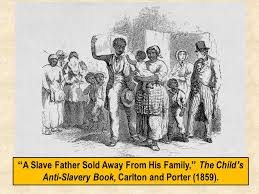Moses
was born into the tribe of Levi, the clan that would become the hereditary priesthood
of Israel; but when Moses was born, the Levites weren’t priests. They were the minor clan descended from a
disgraced ancestor (Genesis 49:5-7) among a community of slaves. Moses and his siblings were spiritually
anointed. The eldest, Miriam, became a
prophetess; Aaron, the middle child, became the first high priest of Israel;
and Moses, the baby, was . . . well, Moses!
But family
life wasn’t all prayer meetings and praise services.
First,
they were all slaves. And, on top of that, Daddy was basically an
absentee father.
Moses’
MOTHER hid him from Pharaoh’s death squads.
Moses’ SISTER followed the basket floating down the Nile. They arranged to keep Moses until he was
weaned. But Daddy? Amram, Moses’ father, didn’t fight Pharaoh’s
guards when they came to investigate reports of an infant birth. He didn’t help hide the baby. From the information in Scripture, Amram didn’t
do anything.
Maybe he
was emotionally disconnected. Maybe he was
worked so hard by his Egyptian overseers that he couldn’t participate in home
life. And maybe slavery broke him. Maybe they so completely whipped away his
hope that he couldn’t even find inspiration in the lives of his children.
Does
this sound familiar?
Don’t believe
the lie that broken families is something new to to our times or unique to our
ethnicity.
The
Bible reports that enslavement and ethnic oppression are designed to breaks
men. When the spirits of the men are
broken, women HAVE to step up. Matriarchy
isn’t a new or progressive paradigm for
the family. Matriarchy is basic survival
for oppressed peoples.
Despite
all of this, Miriam, Aaron, and Moses became the leaders of a movement that emancipated
a nation of slaves and composed the foundational texts of the Gospel. Moses’ story proves that the children of
brokenness don’t have to become the parents of brokenness.
To overcome the brokenness you
inherited, you have to acknowledge your parents’ sins as sins.
Exodus
6: 20 states that Moses’ father and mother were nephew and auntie.
Now Amram took for himself
Jochebed, his father’s sister, as wife; and she bore him Aaron and Moses. And
the years of the life of Amram were one hundred and thirty-seven (Exodus 6:20).
Up to
this point in the Old Testament, marrying such close relatives was
uncommon. Jacob and Isaac married cousins.
Abraham and Sarah were half-brother and
sister.
Yeah, I
know. Eww.
At one
point, while dictating the Law to the children of Israel in the wilderness, Moses
the great prophet said:
The
nakedness of your sister, the daughter of your father, or the daughter of your
mother, whether born at home or elsewhere, their nakedness you shall not
uncover. . . You shall not
uncover the nakedness of your father’s sister; she is near of kin to your
father. You shall not uncover the nakedness of your mother’s sister, for she is
near of kin to your mother
(Leviticus 18:9, 12-13).
That's a
euphemistic way of saying: God doesn’t
want men hooking up with their aunties.
Moses
looked at his family, listened to God, and said to his people: God made my sister, and my brother, and me in
His image. He protected us, filled us
with His anointing, and called us to leadership. We are not mistakes. But the way our parents got together, the
structure of their relationship? That
wasn’t right. The founders of our
nation did great things and were mightily blessed. But the structure of their relationship? That was
sinful.
Good
things came from it. Great people came
from it, but that doesn’t make it right.
God
freed Israel from slavery and said to them, “Now that you’re free be better
than your ancestors were.”
This was
a hard truth for Moses to speak. A hard
truth for me to speak. You see, my daddy
didn’t always do right, but the Lord says that my siblings and I are not
mistakes. He loves us. He blessed us. He brought us thus far along the way, but He
does want us perpetuate the same dysfunction
in which our forefathers lived.
It’s a difficult
thing: to confess that you, your family,
or maybe even your entire nation was conceived in sin and shaped in iniquity.
Difficult
but necessary.
Moses’
story shows us that generational greatness requires us to learn our my fathers’
sins, not repeat our fathers’ sins. We
need to stop encouraging our children in lifestyles that political pharaoh and
spiritual pharaoh designed to break our people.
We
celebrate survivors. We honor the strength of our sisters who did what had to
be done when their man wouldn’t. We
glory in the beauty and potential of our children, regardless how they became
our children. And we teach our children the truth so they and all our descendants can walk into their best lives because of the kinds of families they built not despite the kinds of families they built.
--Anderson T. Graves
II is a writer, community
organizer and consultant for education, ministry, and rural leadership development.
Rev. Anderson T. Graves II is
pastor of Miles Chapel CME Church in Fairfield, Alabama. He writes a blog called A Word to the Wise at
www.andersontgraves.blogspot.com
Email atgravestwo2@aol.com
Click here to
support this ministry with a donation. Or go to andersontgraves.blogspot.com and click on the DONATE button
on the right-hand sidebar.
Support by check or money order
may be mailed to
Miles Chapel CME Church
P O Box 132
Fairfield, Al 35064




No comments:
Post a Comment